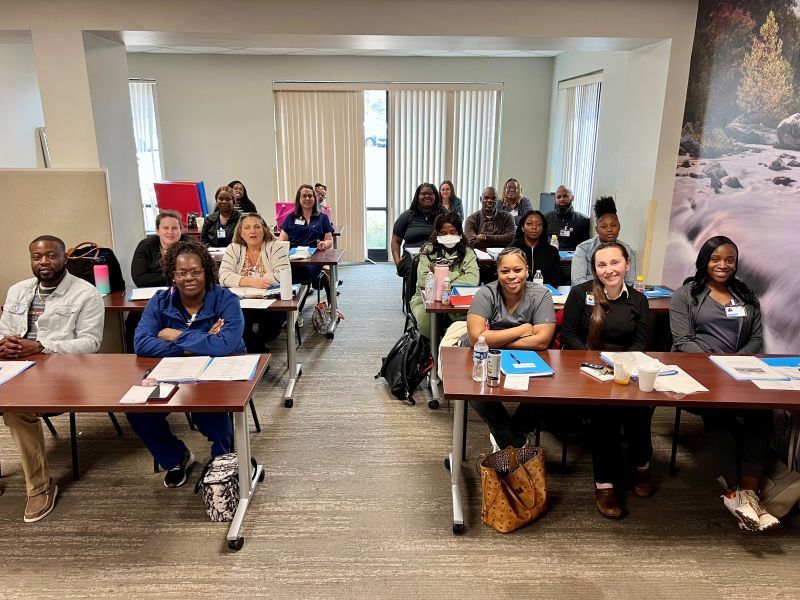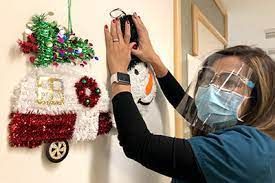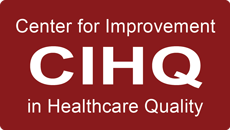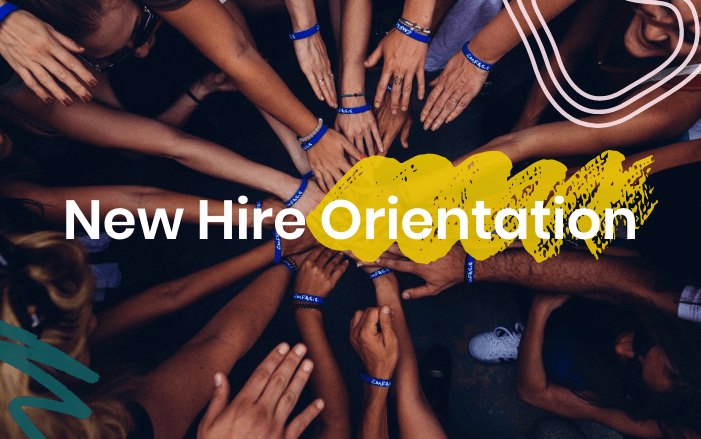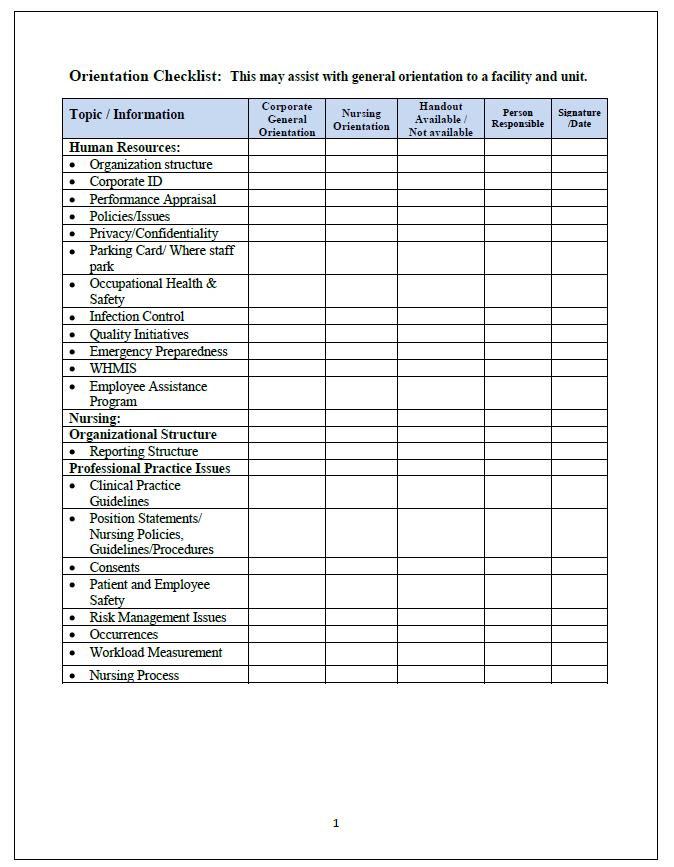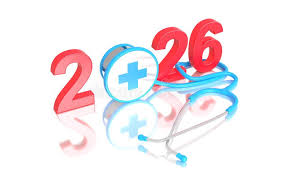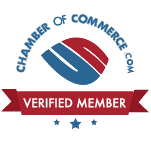New Hire Orientation
Its that time of year again when the kids are heading back to school. This is also a great time for healthcare organizations to refresh their new employee orientation and annual training programs. Setting calendar reminders can prevent oversight of important initiatives. Having a comprehensive and current orientation program in the key to the beginning of a successful education program for healthcare professionals.
When planning your organization’s orientation program be sure to determine who should have complete oversight. In many cases this person is a Human Resources Director. They typically know when new employees are being onboarded and orientation is planned according as part of the onboarding process for new employees. Development of the content should be a collaborative effort among the following department leaders:
Clinical and Non-Clinical
CEO and or CNO: Introductions and welcome to all new team members
HR: Introductions among new employees and roles, resources, company policies such as payroll, badging access, parking, dress code, time and attendance etc.
Life Safety/EOC Specialist: Fire Safety, Environmental Issues, On call support, Active shooter training, facility “codes” for drills and emergency activation, workplace violence, utility shut down-failures
Supply Chain: How to order supplies, charging for supplies
EVS: How to contact EVS for routine and urgent cleaning
Employee Health: Reporting on the job injuries, Global Harmonization System Training, Eyewash station locations and use, safe ergonomics
Risk Management: Risk reporting trainings and platforms
Quality: Introduction to hospital wide quality assurance initiatives
Infection Prevention: Hand Hygiene training Bloodborne Pathogen training, standard and Isolation precautions
Corporate Compliance Officer: Introduction to Corporate Compliance Program and reporting protocol
Medical Records: HIPAA training, reporting breaches, release of information protocol, approved abbreviations
Bio-Medical Engineering: Reporting faulty equipment and PM’s expired PM’s, lock out tag out protocol
Radiology: MRI Safety, Radiations Safety
Clinical employees
Pharmacy: Access to medication, contact information, bar code scanning, pyxis use, narcotic administration and waste, medication reconciliation during transition of care and discharge, LASA drugs, Antibiotic Stewardship, safe medication storage, home medication policy
Nursing: Safety and care throughout course of patient stay. Blood transfusion safe practices/policies, Suicidal Ideation protocol, restraints and seclusion, Protocols, assessment, safe medication administration, orders, escalation process, EMTALA, Advanced Directives, Accessing delineation of privileges for providers, etc.
Respiratory Therapist: Accessibility, Equipment, Treatments, Protocols, Safety administration.
Lab: Resource available around the clock, waive testing competencies-protocols, safe specimen collection-time parameters from collection to delivery, how specimens should be stored if kept on unit temporarily, Critical results reporting
Radiology: Expand on education concerning radiation safety, services available, turn-around times for results, tele-radiology services if provided, on-call schedules if applicable.
Dietary: Resources, consultations, educational resources for patients and families, enteral feedings and supplements, nourishments and contact information for after hours
Nursing and Clinical Departments: Unit specific orientation should be incorporated as part of onboarding based upon the area nursing personnel will work such as Cath Lab, Dialysis, Emergency Department, Med-Surg, Obstetrics, Pediatrics, Peri-Operative Services and Radiology for example.
Once you have re-vamped and revitalized your new employee and onboarding education process, you should begin to think about annual re-education for all employees. We tend to find organizational deficiencies around various dates that onboarding occurs. If you base annual training a year from the date that an employee is onboarded, you must keep up with those dates. You may also consider using an annual across the board refresh date. In other words, all personnel would be required to complete annual re-education every April for example. It may be less than a year for newly onboarded employees but having education sooner than letter is typically a better scenario. For employees who recently onboarded, you may consider making an exception an rescheduling due dates further out. Your process should be determined by its size, services provided and resources available. Most importantly, you must be able to demonstrate a process that works and is able to demonstrate current competencies for all employees.
An annual skills fair is always very well received. Consider dedicating some time once a year to dedicating a single week (or days for smaller organizations) as a re-occurring calendar invite.
Finally, consideration for record keeping is a must. You must be able to produce employee records that include completion of HR onboarding protocols, credentials, education, experience, current licensure and certifications, references, training and competencies. Is your record keeping organized? Are trainings done via paper as well as electronically? Can you attest to an employee’s acknowledgement of training and education and be able to demonstrate that they have been deemed competent in their roles and responsibilities when asked to produce evidence to a surveyor?
Above reflects an overview of minimal educational requirements for clinical as well as non-clinical staff and is not intended to be a complete list of education requirements for healthcare personnel.
As always, HCE Global customizes our services to fit the needs of each individual client or system. We pride ourselves on helping our clients achieve & maintain a status of excellence in the healthcare industry. We will work with you to prioritize your most immediate training needs. If you need of program/policy/procedure development, mock surveys, training, corrective action plan assistance, construction or remodel assistance, or ongoing routine support services, we can help!
Be sure to browse Our Website for a full list of services we provide.
Contact us today at (800) 813-7117 to schedule a free consultation.
References:
https://typelane.com/6-steps-to-include-in-your-new-hire-orientation
